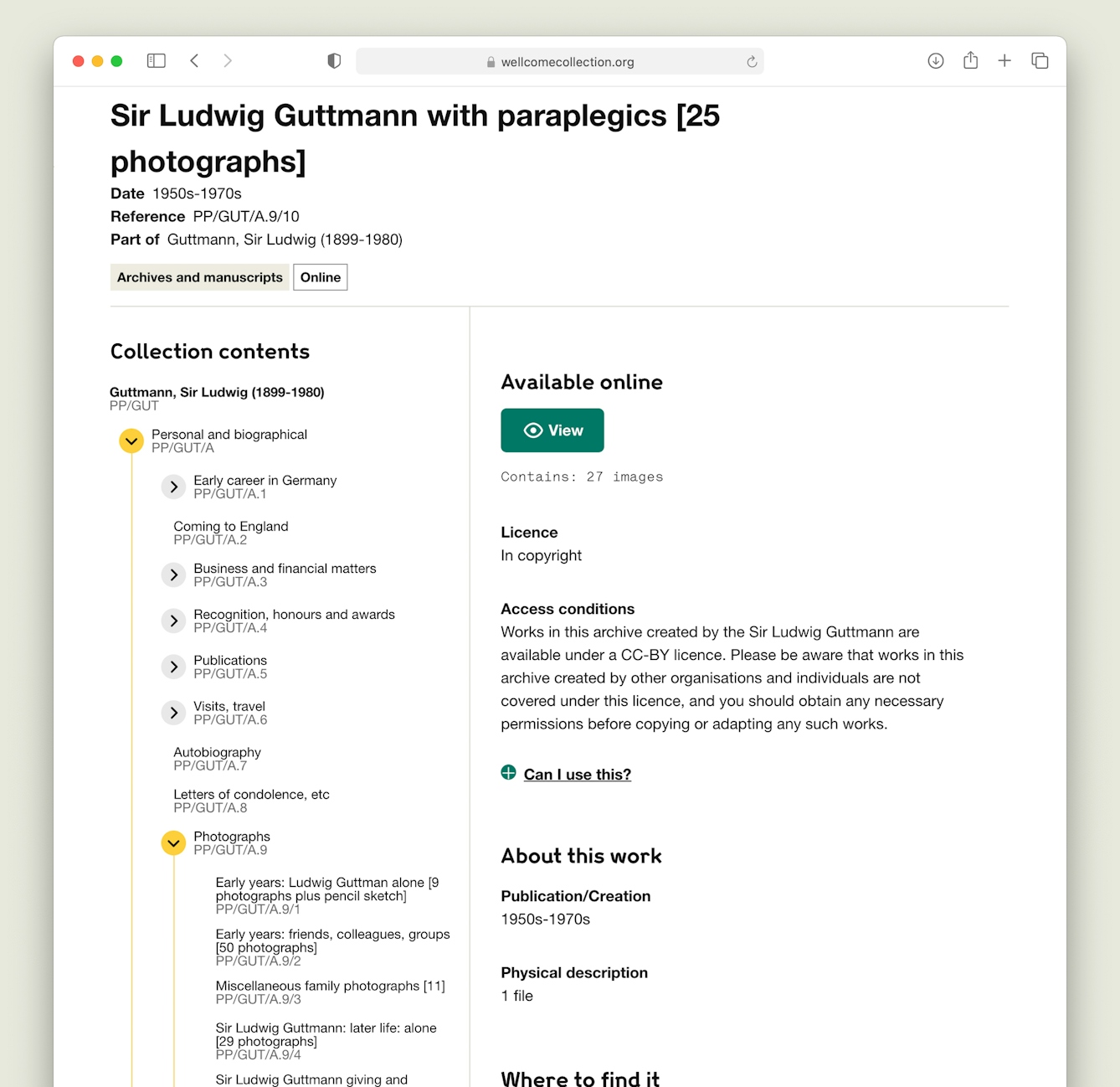Here’s a brief introduction to our archive collections, including guidance on how to access them and some advice on searching archives.
What is an archive?
An archive is a collection of items, also referred to as records, that have been created or accumulated by a single person, a group or an organisation. Most of our archive collections contain unique and unpublished material, mainly from the 19th–21st centuries.

Archives can range in size from a single box of items to hundreds of boxes, and can come in physical or digital formats, including textual documents, audiovisual material and, occasionally, books and objects.
At Wellcome we look after hundreds of archives from many different sources, including:
- health and medical workers and organisations
- charities committed to improving health outcomes and care
- artists and other individuals, often sharing their lived experiences of health and well-being.
Our archivists try to preserve, as far as possible, the original arrangement of records in an archive so that we can visualise how the original owners would have used and understood them. This makes each collection unique in both structure and content.
The structure of an archive collection is reflected in the "Collection contents" in the archive record on our library catalogue. The ‘clickable’ collection content displays all the items in that archive collection and their relation to one another. An archive's structure is also referred to as the archive hierarchy or tree.
When should I use archives?
Archives are particularly useful for providing evidence of past activities, discussions, decisions and outcomes. For example, a hospital archive could contain evidence of treatment through:
- internal meeting notes and correspondence
- advertising brochures
- photographs of patients and staff
- reports drawing conclusions on the relative success or failure of treatments.
You probably don’t need to use archives if you are looking for an introduction to a new subject or some background information for an essay. It’s best to find an historical overview for this, and you'll find lots of books on the histories of different aspects of health and medicine when you search our collections.
How can I see archives at Wellcome?
The majority of our archive collections are in the library stores and must be requested through the library catalogue. You can filter your search results from the catalogue to ‘Archives and Manuscripts’ as the format. A growing number of our archives have been digitised and can be viewed online and downloaded through the library catalogue.
You'll need to have library membership in order to request items from the library stores and to enter the library's Rare Materials Room where the items will be held for you. It takes time for requested items to be delivered to the Rare Materials Room, so it’s best to request material in advance of your visit to the library.
A small portion of our archive material has access restrictions because it contains personal data or distressing or offensive content. You’ll find Information about any restrictions that apply in the library catalogue record. For more information about why and how we make decisions on access, check our policy on ‘Access to personal and sensitive information within our collections’ [PDF 1113kb].
Searching an archive
When you're searching the library catalogue for archives, think about the language and terminology of the period, as well as synonyms and different combinations of terms, to maximise relevant results.
Not everything ends up in an archive collection. Material can be lost over time or discarded when it’s no longer useful to the archive creator or accumulators. We also make collaborative decisions on what material to preserve, guided by our Collections Development Policy [PDF 706kb].
Archive collections are traditionally constructed from the perspective of those with power and influence, and often lack direct evidence of individual and marginalised experiences. It’s worth thinking about whose perspective the archive is from, their beliefs and attitudes, and what (and who) is missing from the record.
Where do I go for help?
If you have any questions on how to search or access our archive collections, email us your query:
